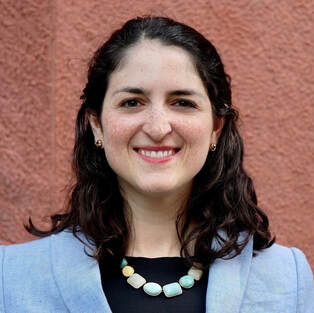The Behavioral Insights Team (BIT) at Geisinger
NOTE: The Behavioral Insights Team (BIT) is a unit housed within Geisinger's Steele Institute for Health Innovation. It is separate from the Meyer-Chabris Lab, which is housed in Geisinger Research, although there is overlap in both personnel and questions of interest.
What We Are
The Behavioral Insights Team (BIT) is a unit in Geisinger’s Steele Institute for Health Innovation that designs, implements, and rigorously evaluates provider- and patient-facing “nudges” that aim to make healthy choices easier. The BIT also investigates the acceptability of nudges to stakeholders. A "nudge" is a way of altering the organization or presentation of options (the “choice architecture”) to the decision-maker (e.g., a clinician or patient) that makes her more likely to make the “right” choice (improved health or equal health with lower cost), without imposing significant additional economic costs or incentives and while leaving her free to make a different choice. Nudges are based on key facts and conclusions from 50 years of scientific research on human decision-making. They have advantages to more heavy-handed interventions ("shoves"): they are comparatively inexpensive (or free) and therefore can potentially deliver significant returns relative to their cost, and they put a thumb on the scale for decisions that are best for most people and in most cases, while leaving people free to make different choices.
What We Do
We partner with internal & external groups to characterize the nature, extent, and causes of the relevant problem. We develop potential solutions informed by behavioral science. We develop an implementation plan that includes rigorous evaluation (usually A/B tests). We achieve stakeholder buy-in and approvals for the proposed intervention. We analyze the resulting data and work with our partners to implement or optimize the intervention. Finally, we disseminate our findings so that others can learn from what we do. We have a long-term partnership with the National Bureau of Economic Research (NBER) in the NBER Roybal Center for Behavior Change in Health, one of 13 National Institute on Aging (NIA)-funded Roybal Centers.
Examples of Our Work
- Shermohammed, M., Goren, A., Lanyado, A., Yesharim, R., Wolk, D. M., Doyle, J., Meyer, M. N.,* Chabris, C. F.* Informing patients that they are at high risk for serious infection increases vaccination rates. MedRxiv preprint. * joint senior authors
- Santos et al., Sending emails designed with behavioral science to increase COVID-19 vaccination among health care workers. Preprint coming soon.
- Milkman, K. L., et al. A mega-study of text-based nudges encouraging patients to get vaccinated at an upcoming doctor’s appointment. SSRN preprint.
- Milkman, K. L., et al. A mega-study of text-message nudges encouraging patients to get vaccinated at their pharmacy. SSRN preprint.
Who We Are
Michelle N. Meyer, PhD, JD
|
Christopher F. Chabris, PhD
|
Amir Goren, PhD
|
Gail Rosenbaum, PhD
|
Henri Santos, PhD
|
BIT Alums

Maheen Shermohammed was a Staff Scientist in the Behavioral Insights Team at Geisinger from 2019-2021, where she applied behavioral science research to test and implement interventions targeted at improving health outcomes and the functioning of the health system. She has expertise in experiment design, R programming, statistical analysis, and data visualization. Maheen completed her Ph.D. in Psychology at Harvard University, where she used brain imaging techniques to study how people process emotions in challenging circumstances. She also founded Harvard’s Women in Psychology group, a 60+ member organization that promotes diversity and inclusion in the psychological sciences. Before Geisinger, Maheen conducted research at MIT, where she managed research studies on topics including memory, autism, ADHD, and mild traumatic brain injury. Maheen holds a B.S. in Neuroscience from Duke University.




